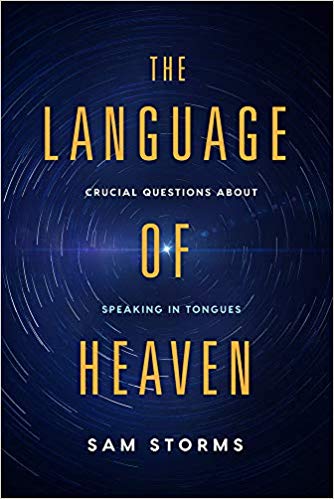| November 11, 2019 |
no comments
According to First Corinthians 14:2, the person speaking in tongues utters mysteries.
I develop at length in my book a series of ten arguments from the biblical text that demonstrate clearly that the tongues as described outside of Acts 2 are not known human languages, but instead uniquely crafted linguistic expressions created by the Holy Spirit for each individual to whom he chooses to give this spiritual gift. (1) I’ve already mentioned the two other instances of tongues in Acts 10 and 19 that don’t fit the pattern of known human languages. (2) Paul speaks of various “kinds” or “species” of tongues in 1 Cor. 12:10 and 28. Hence, there are different categories of tongues speech: perhaps known human languages, heavenly languages crafted by the Spirit, the linguistic expressions among the angels, etc. (3) In 1 Corinthians 14:2 Paul says that the one who speaks in tongues does not speak to men but to God. But if all tongues are human languages, Paul would be wrong. Many would be speaking to men in whatever language they were employing. (4) Also in 1 Cor. 14:2, Paul says that “no one understands” the person speaking in tongues. If all tongues are known human languages, that wouldn’t be true. Anyone who spoke that particular language would understand perfectly what was being said. (5) The person speaking in tongues “utters mysteries” (1 Cor. 14:2). But if all tongues are human languages, there would be no “mystery” to what is being said. Anyone who spoke that particular language would understand it perfectly. (6) If all tongues are known human languages, what need would there be for the gift of interpretation. Anyone who had been educated and raised speaking a particular language could “interpret” the tongue without the help of the Holy Spirit. (7) The “tongues of … angels” (1 Cor. 13:1) at least suggests that humans can be enabled to speak them. Thus tongues in this case wouldn’t be human languages but angelic dialects. (8) In 1 Cor. 14:10-11 Paul “compares” tongues with human languages. He doesn’t equate them. He says tongues function “like” foreign languages in the sense that apart from interpretation no one will understand. (9) If tongues are always human languages, why would Paul speak “more than” all the Corinthians in private, where no one can understand, rather than in church where foreign visitors could understand? (10) If tongues are always human languages, what Paul says in 1 Cor. 14:23 wouldn’t necessarily hold true. Potentially, many outsiders visiting a church would understand. Anyone who spoke the language Paul was speaking would make perfectly good sense of it.
Pneuma Review: How would you respond to a person who says that tongues is the least of the gifts?
Sam Storms: I would say that this is a misunderstanding of why Paul puts tongues at the bottom of his lists. He does so for at least two reasons. First, it is a gentle, but unmistakable, rebuke of the Corinthians who were insisting that it was the most important gift. Second, Paul subordinates tongues to other gifts only because apart from interpretation it is of no benefit to others in the church. But as he says in 1 Cor. 14:5, when it is accompanied by interpretation it is just as important and as effective in building up the body as is prophecy.
Pneuma Review: What are the main benefits of speaking in tongues?
Sam Storms: Praying in tongues enables us to bring our requests to God when we’ve run out of things to say. We are finite. Our minds eventually go dry and empty. But praying in tongues is the way in which the Spirit can articulate our prayers to the Father when we feel inadequate to do so. Also, tongues is a way in which we can sing our praises to God (1 Cor. 14:15) as well as give thanks to him (1 Cor. 14:16). Paul declares that when a person prays in tongues he builds up himself, and that is a good thing (see also Jude 20). The fact that he doesn’t proceed to tell us precisely how praying in tongues builds us up spiritually is no reason for us to deny the gift or suppress its use.
Tags: bringing, featured, god, interview, requests, sam, storms
Category: Fall 2019, Spirit



